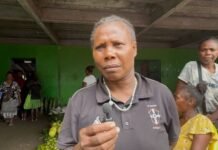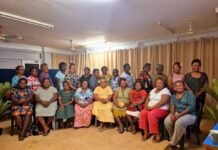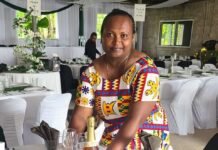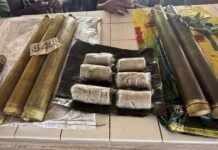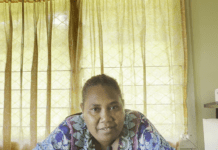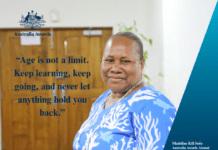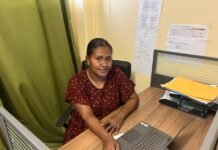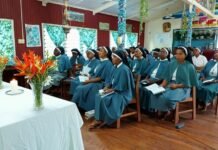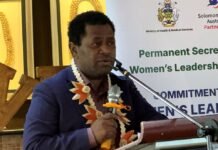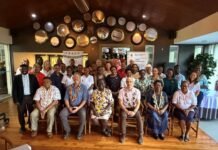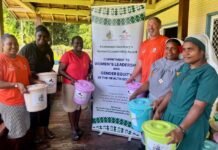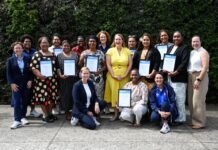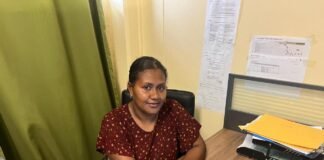
BY JEFFREY TAFOLEHE
A workshop on the Traditional Knowledge and Cultural Expression Bill was recently held in Honiara to consult with stakeholders on Solomon Islands’ traditional knowledge.
Different stakeholder groups in the country were consulted to attend the event to discuss the bill. Solomon Women Newspaper exclusively interviewed one local female participant representing a group.
“My name is Qila Tuhanuku. I represent the Arts and Alliance group. I find the bill very useful. It is very broad and covers every aspect of traditional knowledge from medicine to cultural practice, arts, and cultural items.
“We from the arts and alliance, we are mainly from the creative side so this bill applies in certain areas we are involved in.
“It is useful because some of the issues raised were common across every group and we have different groups like artists, designers, and video directors who can contribute to the bill during the consultation.
“So I see it as very beneficial because when it becomes a law it will cover many areas and serve the groups. Therefore in one sense, the law is good because it will protect our traditional knowledge against mass exploitation and mass commercialization.
“Like some of the examples we have heard during the discussions are Chinese shops in town mass-producing baskets with local designs on them.
“Not only that but it will also protect the work of locals and our traditional knowledge internationally. One area that is still unclear to me is the copying of artwork, designs, and crafts by different groups in the country Most artists can copy art or symbols from different provinces into their designs so I am wondering what the implications for such practices are.
“Do the artists have to get permissions or licenses to produce it or this is catered for in the law.
“Thus we have been discussing a wide range of topics therefore its quiet difficult to identify where the gaps are, but the act is a broad subject, however, a lot of things we feel are gaps we talked about when implementing such as whom to oversee it and when a person comes with his or her claims and all those details.
“These are some of the things we discussed in groups but it’s really difficult to have all those fine details in the act all the time.
“However, the main thing is if it provides enough protection and doesn’t penalize artists, for instance, doing video production and includes some traditional content inside who might end up not having access to the materials easily.
“Also if it involves a long process acquiring a license for someone interested in video production marketing wanting to do a documentary and the person doesn’t have enough funds, he or she might end up not able to complete the project.
“In that regard, we lose out because someone is willing to document something for the Solomon Islands at their own cost.
“Therefore those sorts of products will become harder for us.
“We will also face issues where we cannot bring in big productions from outside and pay a lot of money for it.
“This is the same for the artist as well. If there are restrictions then we will see less Solomon artwork out on the market which may have icons we recognize.
“Those examples are specific to the areas I am part of especially when it comes to the question of is this bill enough, I think it’s not enough.
“Most of the participants in the workshop except for the lawyer consultants, know very little about the laws of the country such as copyright laws.
“In my discussion group when the question of copyright was asked, the majority of us are not aware that there is a copyright law in the country.
“So I think it is not enough trying to understand the bill we have discussed.
“It is a challenge we will need more time to understand. But the good thing is organizers realized after this workshop that there is a need for more consultation, therefore, plan to put in the bill next year.
“If we don’t understand the whole bill then we can’t identify what is missing or other things that need to be omitted, how that law will affect other laws, or how different acts will complement each other.
“So there are a lot of things that stakeholders need to understand well to contribute effectively to the bill.
“Hopefully, they will do a lot of consultation and some of the things our group misses, other groups might raise.
“This bill is very important for rural people to understand because they live by the traditional practices.
“In Honiara perhaps because of the mixture of cultures co-existing, some cultural practices are stronger than others.
“However they are very much depending on at the village level.
“Law only comes in when someone gets into trouble but in everyday life, we live by our traditional practices.
“This law is very important for rural people.
“In Honiara, we don’t always apply our culture because we are living with people of different cultures.
“However if you are from say a particular province but understand your customs and tradition, your contributions to this bill will be invaluable because you have a good understanding of traditional practice as well as in the modern world.
“So they are important in the sense that what contributions they gave will ensure the gaps between tradition and the modern world will be addressed,” Qila Tuhanuku told Solomon Women.






